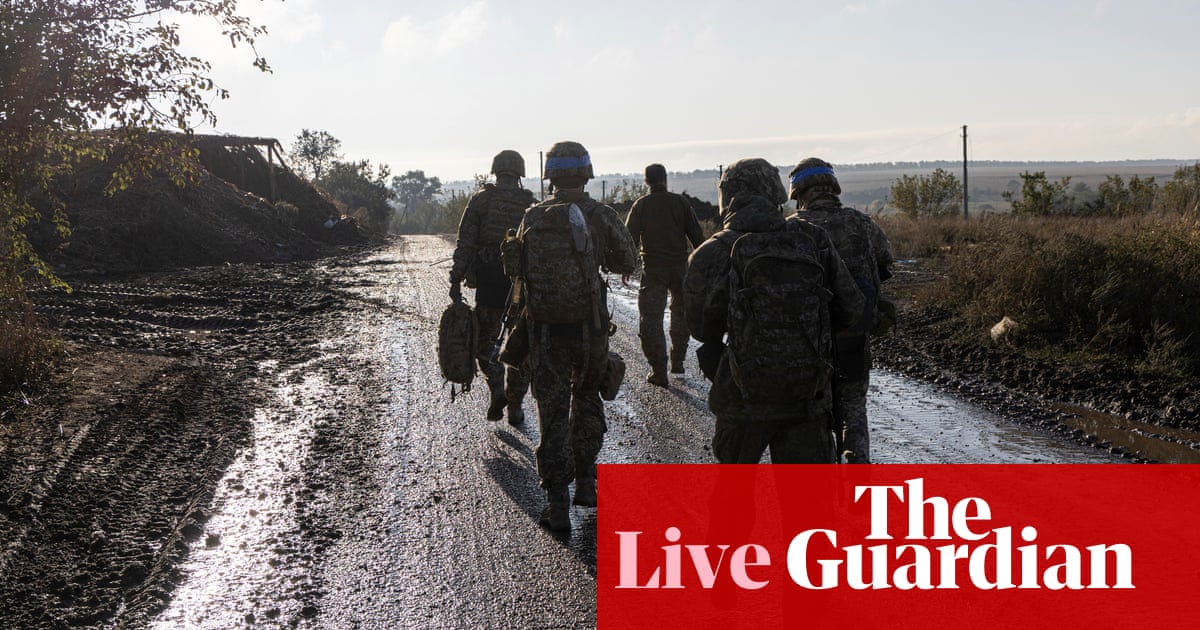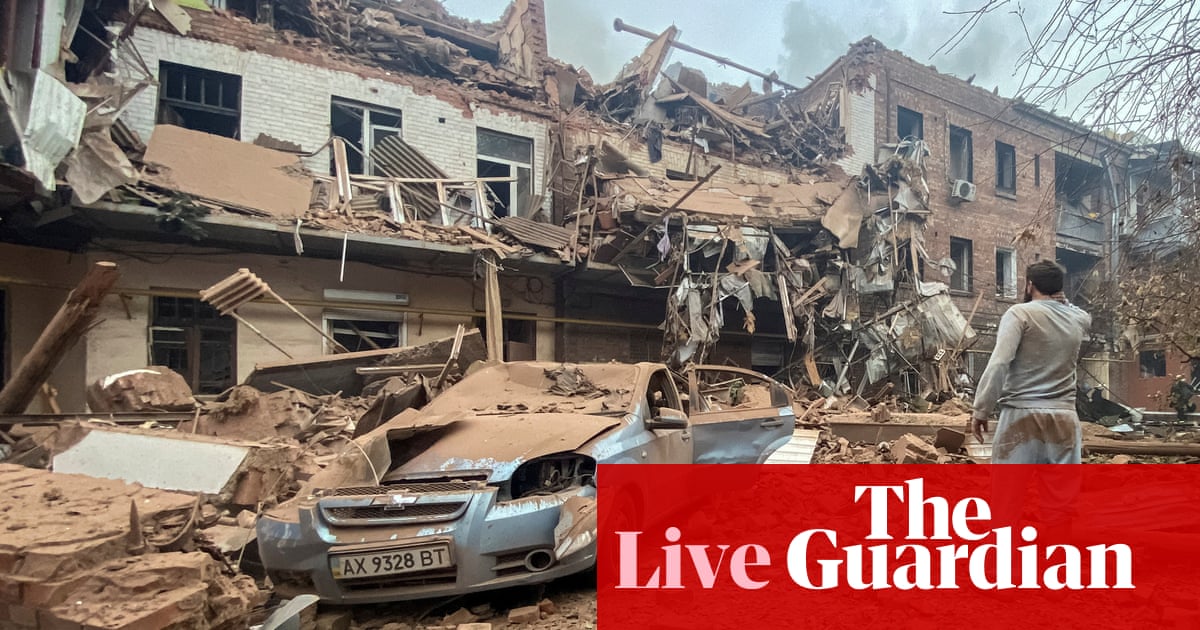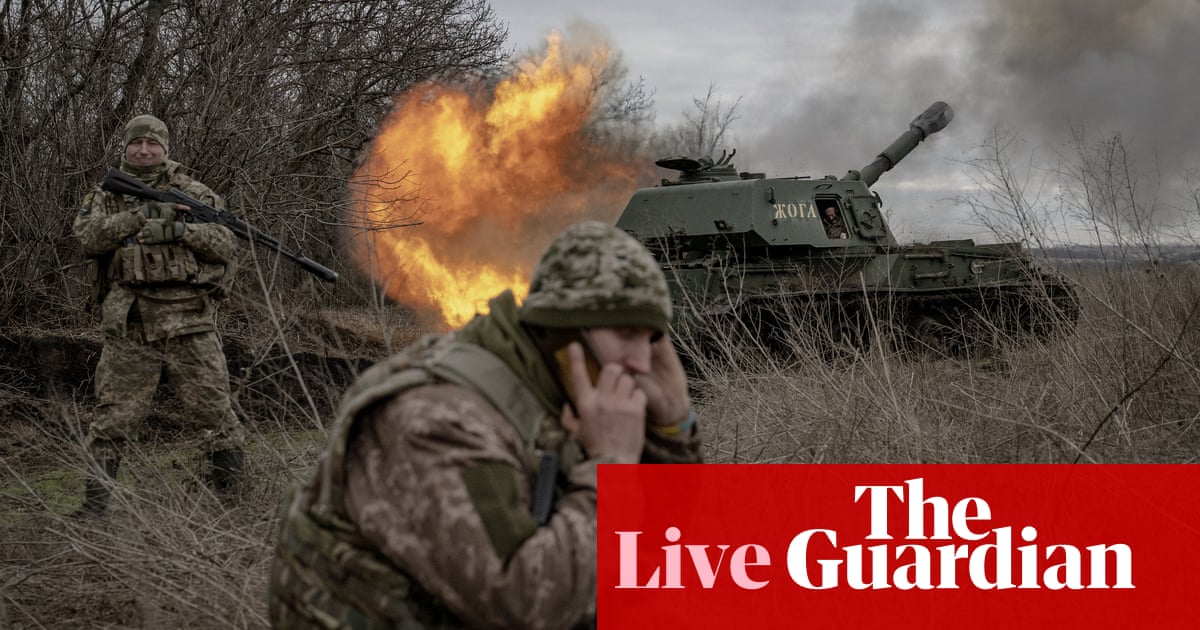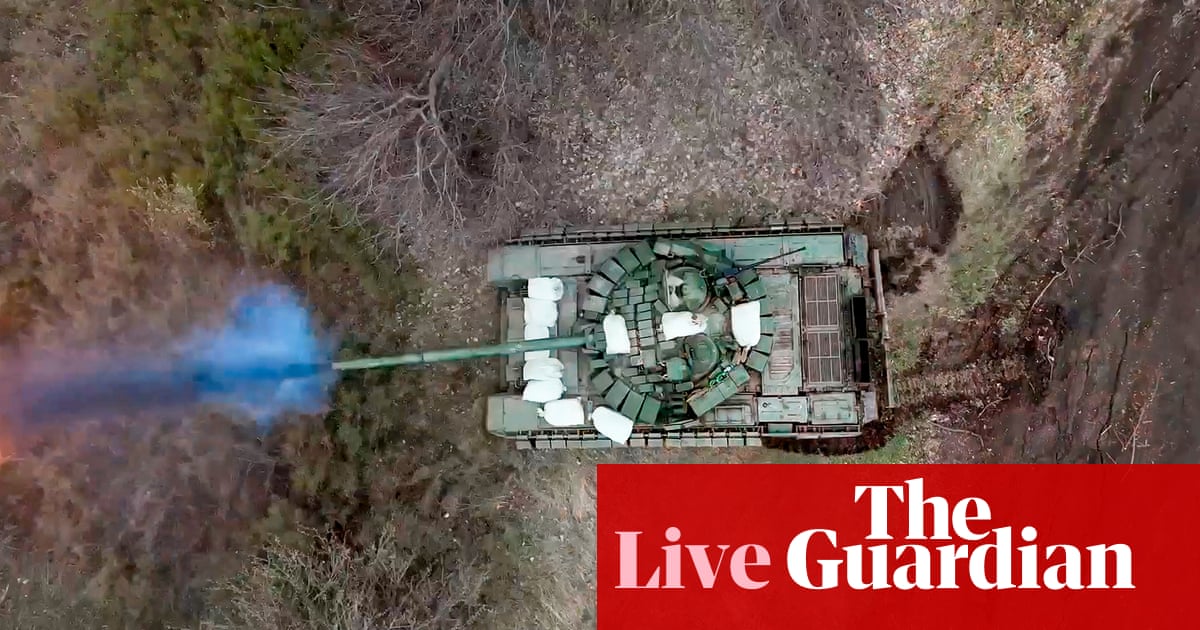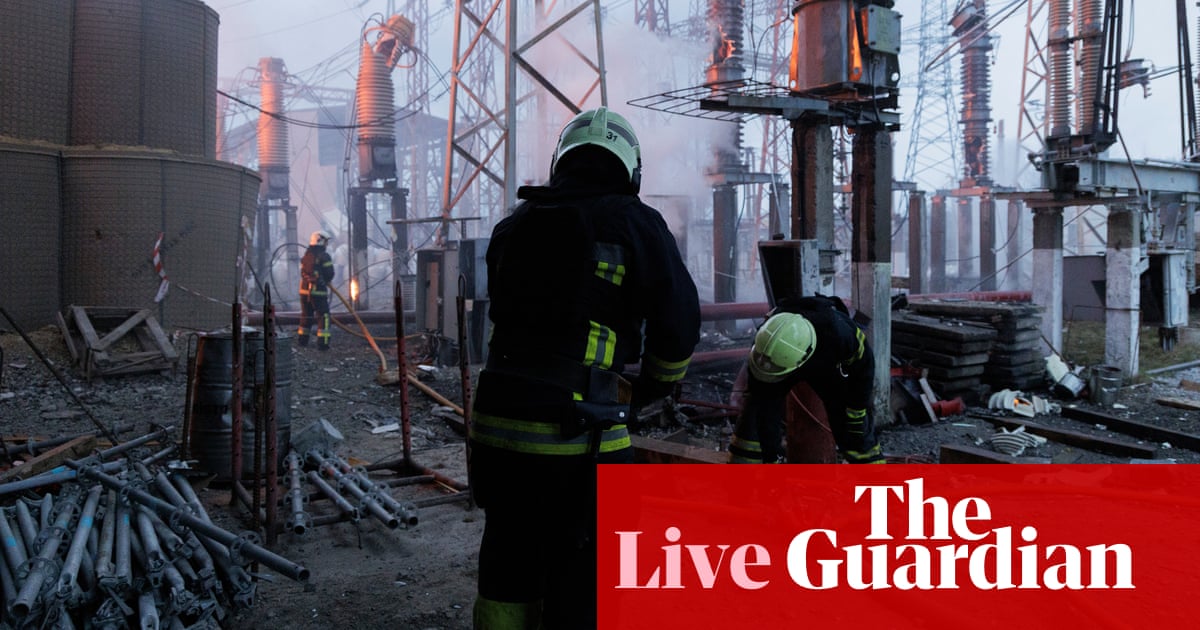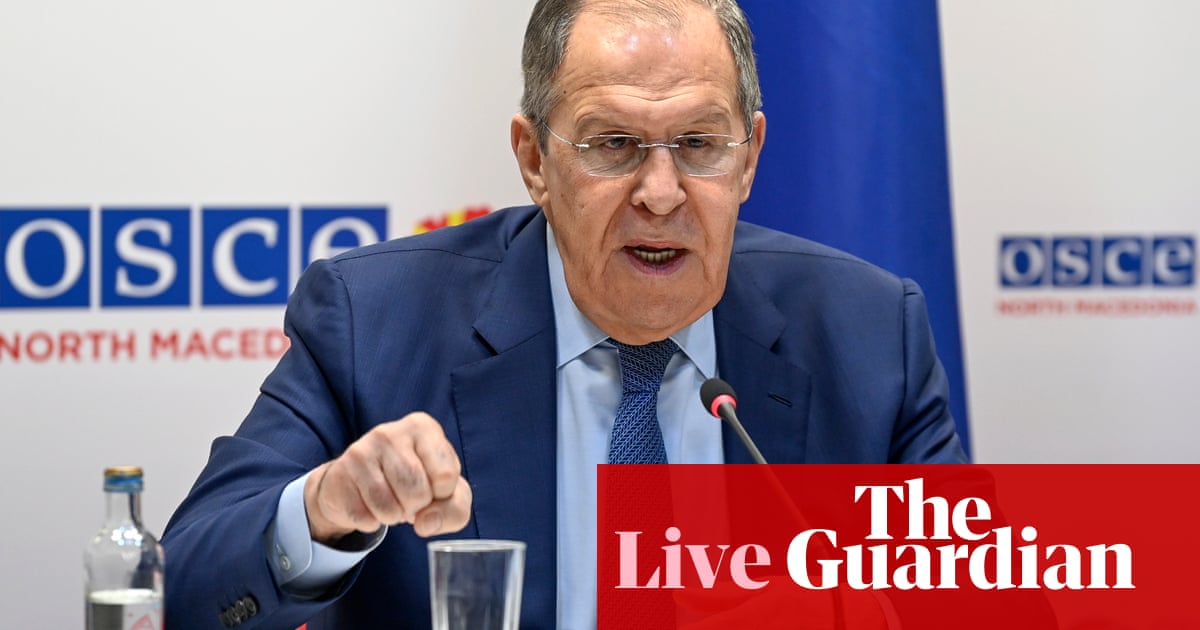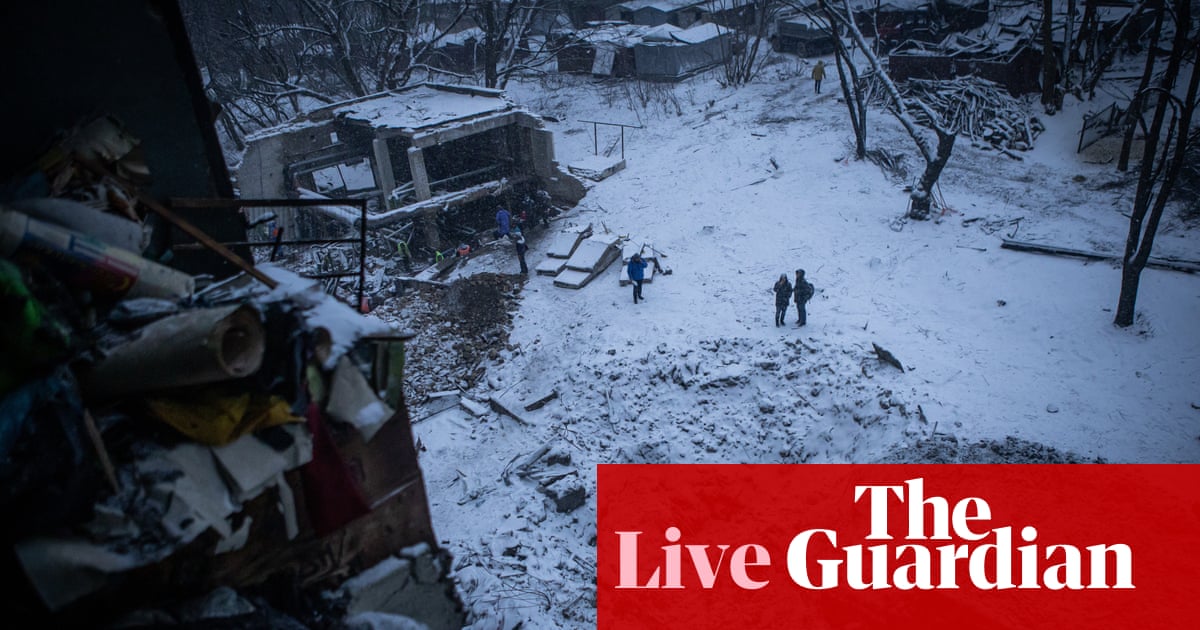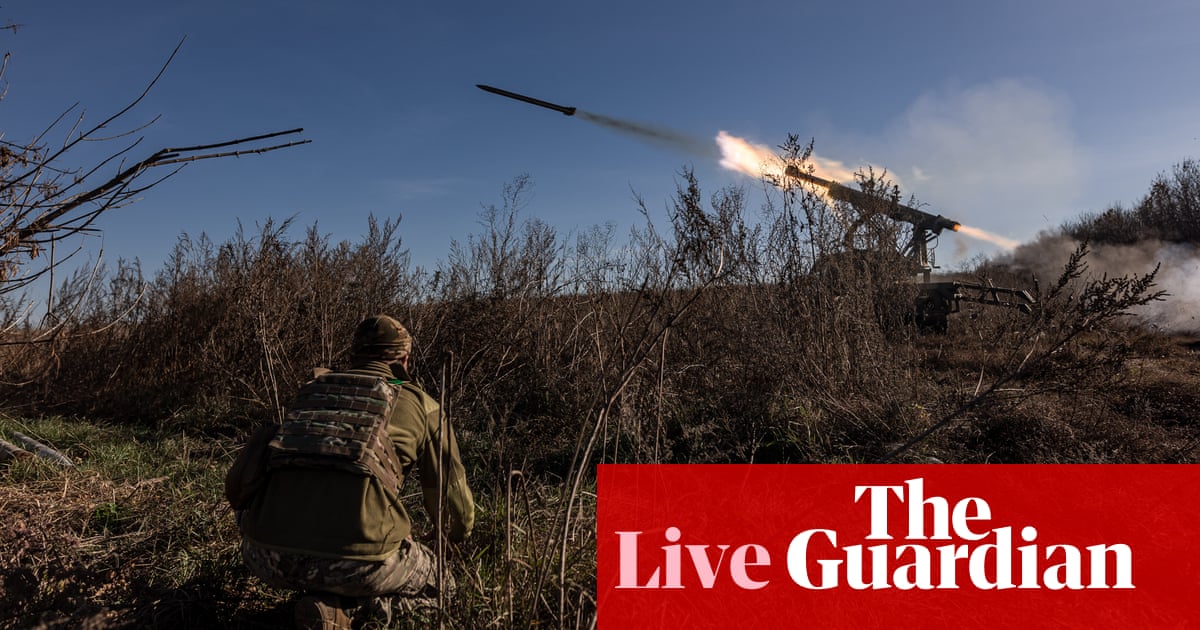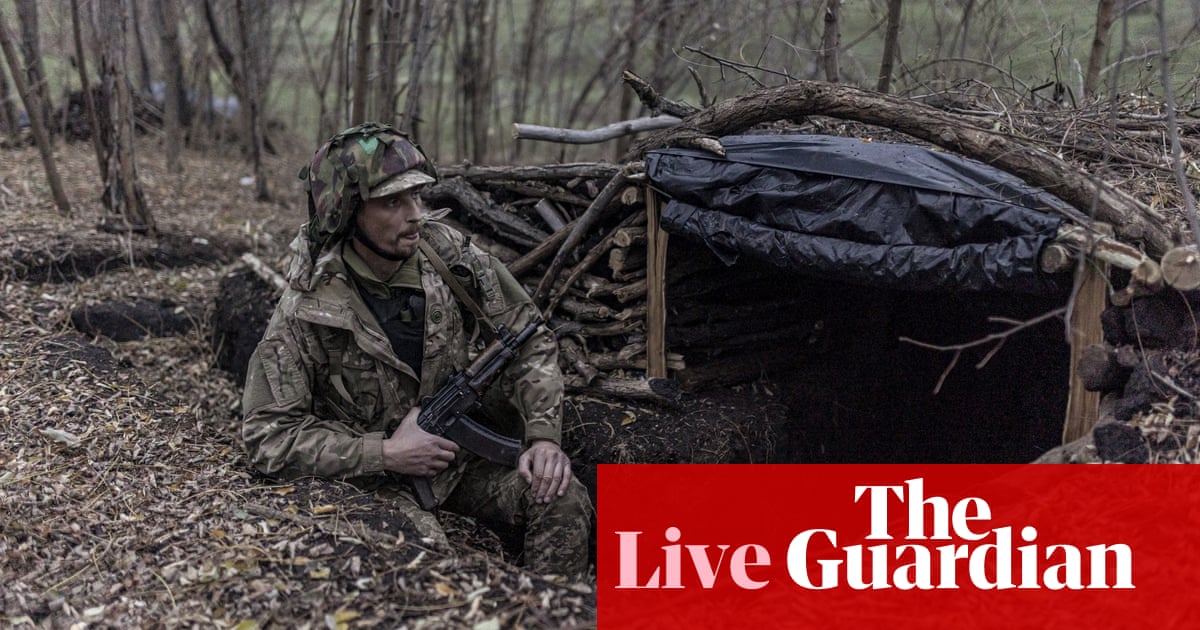
The Ukraine war is overextending Russia"s military, MoD says
The Ukraine conflict is overextending Russia’s military and straining its ability to maintain secure defence of its borders, the UK’s Ministry of Defence has said.
In its latest daily intelligence update, posted to X, formerly Twitter, the ministry said that Russia will probably need to reallocate surface-to-air missile (Sam) systems from distant parts of Russia to maintain coverage over Ukraine, after the reported losses of several of its SA-21 long range Sam systems last week.
Russia positions Sams at strategically important locations, such as around its borders. Removing systems would almost certainly weaken Russia’s air defence on its peripheries, the MoD update said.
The need for Russia to move its strategic air defence assets would “demonstrate how the Ukraine conflict continues to overextend Russia’s military and strains its ability to retain baseline defences across its vast area”, according to the update.
Closing summary
The UK Ministry of Defence said Russia’s military was being overextended by the war in Ukraine. In its latest daily intelligence update, the MoD said that the likely need for Russia to reallocate surface-to-air missile (Sam) systems from distant parts of its territory to maintain coverage over Ukraine showed the conflict was straining its military.
A Ukrainian diplomat said a global peace summit for Ukraine may take place next year. The Ukrainian president’s top diplomatic adviser, Ihor Zhovkva, said it might take place in February 2024.
Ukraine said queues were growing at its border with Poland as Polish lorry drivers continued to block crossings for a fourth day. The protests, which started on Monday, involved the drivers blocking three border crossings with Ukraine. They are protesting against competition from Ukrainian drivers.
Ukraine told its western allies that giving it the interest accrued from frozen Russian assets would not be enough to compensate for damage sustained by the war and that it hoped to receive the assets in full. Ukraine’s deputy justice minister, Iryna Mudra, said Kyiv’s partners were considering introducing a tax on income or investment of frozen Russian assets, an idea she said Kyiv welcomed but saw as insufficient.
Germany issued new defence policy guidelines for the first time in over a decade. The 19-page document details what the Zeitenwende, the major shift of policy German Chancellor Olaf Scholz announced after Russia’s invasion of Ukraine in February 2022, means for the workings of Germany’s military.
Hungary said the EU should not start membership talks with Ukraine. EU leaders are expected to decide next month whether to accept the European Commission’s recommendation to invite Kyiv to begin membership talks with the bloc, but Hungary prefers a form of “privileged partnership” for Ukraine, rather than full membership.
But Ukraine will be able to overcome Hungary’s political opposition to its progress on EU membership, according to Kyiv’s minister for European integration, Olga Stefanishyna. “We understand that there is a such a statement, but we also understand there is a dialogue with Budapest,” she said.
Ukraine says global "peace summit" may take place next year
A global “peace summit” for Ukraine may take place in February 2024, according to a top Kyiv official.
Ihor Zhovkva, the Ukrainian president’s top diplomatic adviser, told Reuters that the country would arrange a fourth meeting of national security advisers in late November or early December “and the global summit might take place in February 2024,” he said in a written statement.
“The summit will definitely take place, as it will mark both the symbolic beginning of the practical implementation of the Ukrainian ‘peace formula’ and summarise all the results that have already been achieved on this track.”
The peace formula is a 10-point plan calling for the restoration of Ukraine’s territorial integrity, withdrawal of Russian troops, protection of food and energy supplies, nuclear safety and the release of all prisoners.
News of the summit comes as concerns mount in the west that the war in Gaza is making it harder to win over diplomatic support for Kyiv’s blueprint for peace.
The peace formula talks will not involve Russia, which has rejected the plan, saying it would be impossible to implement.
The European Commission will host technical experts from the G7 next week to hash out a final plan for a ban on Russian-origin diamonds, Reuters reports.
Sources said the planned 1 January 2024 implementation date was slipping as talks have dragged, but that the G7 intended to implement the ban starting in the first quarter of next year.
The commission is expected to propose its twelfth package of sanctions on Russia to member states next week, with a focus on cutting Moscow’s revenues from diamonds.
An EU diplomat said Belgium’s proposal that suggests tracing the diamonds from the rough stage in Antwerp – the main hub for the world’s rough diamond trade – would be closely mirrored in the commission’s proposal.
Russia’s state diamond miner Alrosa has been placed under sanctions by the US but not the EU. Major western jewellery brands began shunning Russian diamonds soon after Russia invaded Ukraine in February last year.
The Kremlin is moving to absorb former Wagner soldiers into Russia’s military structures, the Guardian’s Russian affairs reporter Pjotr Sauer writes.
Russia is seeking to recruit battle-tested Wagner fighters for its war in Ukraine more than two months after the death of Yevgeny Prigozhin, the mercenary group’s founder.
Putin has cast the Wagner chief as a traitor but struck a much milder tone with regular Wagner soldiers, urging them to sign contracts with the military and swear an oath of allegiance to Russia.
Weeks after Prigozhin’s death, Putin met Andrei Troshev, a former senior Wagner commander, to discuss how its fighting force could be used in Ukraine. After the meeting, the Kremlin said Troshev had signed a contract with the defence ministry.
The regular army is only one of many pathways open to former Wagner soldiers, with Russia’s national guard, known as Rosgvardia, and several state-linked private military groups also poaching Wagner veterans.
Germany has issued new defence policy guidelines for the first time in over a decade, Reuters reports.
The 19-page document details what the Zeitenwende, the major shift of policy German Chancellor Olaf Scholz announced after Russia’s invasion of Ukraine in February 2022, means for the workings of Germany’s military, the Bundeswehr.
As a first step to bring the military back up to scratch after decades of attrition after the cold war, Germany set up a €100bn fund last year to purchase modern weapons and pledged to reach Nato’s target of spending at least 2% of the national GDP on defence from 2024.
“With the Zeitenwende, Germany becomes a grown up country in terms of security policy,” the country’s defence minister, Boris Pistorius, said as he presented the guidelines, the first since Berlin suspended conscription in 2011.
He called the document Berlin’s response to a new reality as Russia’s full-scale invasion of Ukraine in 2022 had brought back war to Europe and raised the level of threat, thereby fundamentally changing the role of Germany and the Bundeswehr.
Pistorius laid out Germany’s new defence policy in an editorial for newspaper Tagesspiegel earlier on Thursday.
Here are some of the latest images from the newswires:
Ukraine said queues were growing at its border with Poland as Polish lorry drivers continued to block crossings for a fourth day over what they see as unfair competition from Ukrainian firms, Agence-France Press reports.
“Traffic on the Ukrainian-Polish border has remained complicated since 6 November in three directions,” Andriy Demchenko, a spokesperson for Ukraine’s border service said.
Kyiv estimates that around 1,700 lorries were queuing to enter Ukraine.
Poland’s border service has published estimates of the wait time at entry points into Ukraine. It estimated that crossing by freight lorry at the Hrebenne checkpoint would take 150 hours, while the wait at the border at Medyka, further south, would be 55 hours.
“It is wrong to close the border with Ukraine during the war,” Oleksandr, a 36-year-old driver who had been queing for two days at the Rava Ruska crossing, told AFP. He declined to give his surname.
In an editorial for newspaper Tagesspiegel, Germany’s defence minister, Boris Pistorius, said Berlin is aiming to make its armed forces “the backbone of deterrence and collective defence in Europe”.
Russia’s war of aggression against Ukraine meant the continent faced a renewed military threat that fundamentally altered the role of Germany and its armed forces, Pistorius said.
Just as Germany had benefitted from the deployment of allied troops during the cold war, Germany’s partners now expected Berlin to live up to its responsibility and exercise leadership in Europe, he said.
Announcing fundamental changes across all areas of the German army – the Bundeswehr – to make it “ready to fight a war”, he said the future structure of the German forces would be determined by what was needed for the defence of the country and its allies.
Pistorius said Germany would deploy around 5,000 troops permanently to Lithuania – a first for the Bundeswehr – that would demonstrate proof that his country was stepping up to its new role.
Germany is set to issue new defence guidelines – its first since 2011 – this week.
Ukraine’s infrastructure minister, Oleksandr Kubrakov, has discussed Polish lorry drivers’ protests at the Ukrainian border with his Polish counterpart, Reuters reports.
The protests, which started on Monday, involved the drivers blocking three border crossings with Ukraine. They are protesting against competition from Ukrainian drivers.
After Russia’s invasion of Ukraine, the EU waived a system of permits for Ukrainian transport companies to enter the bloc.
Polish hauliers claim the move has triggered an influx of Ukrainian competitors, hitting their profits. One of the protesters’ main demands is for Ukrainian drivers to receive a limited number of permits.
Ukraine’s infrastructure ministry said in a statement that Kyiv would not compromise on permits for Ukrainian drivers.
“Ukraine respects the right to protest and is ready for a constructive dialogue to resolve the situation ... At the same time, we note that the border-blocking by Polish protesters violates logistics routes, that already affects both the economy of Ukraine and the European Union,” the statement said.
Ukraine told its western allies on Thursday that giving it the interest accrued from frozen Russian assets would not be enough to compensate for damage sustained by the war and that it hoped to receive the assets in full.
Kyiv estimates that $400bn (£325bn) will be needed to rebuild the country devastated by Russia’s invasion, an amount it believes could double if compensation for the war’s victims is taken into account.
The European Commission president, Ursula von der Leyen, said last month that the value of frozen Russian sovereign assets was about €211bn (£184bn)
Ukraine’s deputy justice minister, Iryna Mudra, told Reuters Kyiv’s partners were considering introducing a tax on income or investment of frozen Russian assets, an idea she said Kyiv welcomed but saw as insufficient.
There was no alternative to the solution of confiscating the assets in full and handing them to Ukraine, she said.
“Yes, such a decision requires political will, and therefore it is especially dangerous if additional initiatives are considered a successful solution to all problems.”
The issue of finding funds to rebuild the economy and fight the war with Russia is more urgent than ever, as Kyiv fears a reduction in western aid and the Ukrainian economy is unable to generate sufficient funds.
Summary so far ...
The UK Ministry of Defence said Russia’s military is being overextended by the war in Ukraine. In its latest daily intelligence update, the MoD said that the likely need for Russia to reallocate surface-to-air missile (Sam) systems from distant parts of its territory to maintain coverage over Ukraine showed the conflict is straining its military.
Hungary said the EU should not start membership talks with Ukraine. EU leaders are expected to decide next month whether to accept the European Commission’s recommendation to invite Kyiv to begin membership talks with the bloc, but Hungary prefers a form of “privileged partnership” for Ukraine, rather than full membership.
But Ukraine will be able to overcome Hungary’s political opposition to its progress on EU membership, according to Kyiv’s minister for European integration, Olga Stefanishyna. “Today, Hungary has made such a statement,” she said. “We understand that there is a such a statement, but we also understand there is a dialogue with Budapest.”
Kremlin spokesperson Dmitry Peskov said Russia does not believe the European Union’s promises to admit Ukraine are “real”. “Most likely we are talking about a carrot that is tied in front of the cart,” Peskov said in comments to the Kremlin reporter Pavel Zarubin.
Ukraine’s parliament voted to approve its 2024 state budget. Reuters reports that more than half of all Ukrainian budget spending is planned for the defence sector to fund its war effort against Russia.
Ukraine’s security service (SBU) confirmed in a statement to Reuters that Russian hackers were behind a cyber-attack that disrupted part of Ukraine’s power grid in late 2022. The attack was likely to have been carried out to maximise the impact of Russian missile strikes, Illia Vitiuk, the head of the SBU’s cybersecurity department, said.
Russia does not believe the European Union’s promises to admit Ukraine are “real”, according to the Kremlin spokesperson, Dmitry Peskov, Reuters reports.
“Most likely we are talking about a carrot that is tied in front of the cart,” Peskov said in comments to the Kremlin reporter Pavel Zarubin.
The European Commission has recommended that Ukraine be invited to begin talks to join the bloc as soon as it meets final conditions, even as it continues battling to repel Russian forces.
For talks to begin, all 27 EU member states have to approve them. Earlier today, Hungary said the EU should not start the talks, instead favouring a form of “privileged partnership” for Ukraine with the EU.
More on Ukraine’s parliament approving its 2024 budget earlier on Thursday.
More than half of next year’s budget will used to fund the war effort against Russia.
“The priorities are clearly set in the budget. All our internal resources will go so we can withstand and win over the enemy,” Ukraine’s prime minister, Denys Shmyhal, said after the vote.
“Practically 50% of our spending for defence and security of Ukraine,” Shmyhal said. “There will be more weapons and vehicles, more drones, ammunition and missiles. Every hryvnia from a taxpayer will go to the army.”
Shmyhal also said the government planned to increase the minimum wage and pensions to help millions cope with the rising cost of living during the war.
Ukraine’s security service (SBU) has confirmed in a statement to Reuters that Russian hackers were behind a cyberattack that disrupted part of Ukraine’s power grid in late 2022.
The statement from the country’s main intelligence agency backs up earlier claims by the US cybersecurity firm Mandiant, part of Google, that Russian spies were responsible for the hack in October last year.
The SBU said the hacking group know as Sandworm had been behind the attack, and that the group was staffed by officers from Russia’s GRU military intelligence agency. The attack was likely to have been carried out to maximise the impact of Russian missile strikes, Illia Vitiuk, head of the SBU’s cybersecurity department, said in a statement.
Ukraine will be able to overcome Hungary’s political opposition to it beginning talks on EU membership, Reuters reports Kyiv’s minister for European integration, Olga Stefanishyna, as saying.
The European Council will decide next month whether to begin membership talks with Ukraine, which will require unanimous support among all 27 states. Hungary said on Thursday that the EU should not start talks, but instead offer the country some form of “privileged partnership”.
“Today, Hungary has made such a statement,” Stefanishyna said. “We understand that there is a such a statement, but we also understand there is a dialogue with Budapest.”
She said bringing Hungary on side over the next month would be a challenge, but that she was confident Ukraine would succeed.
Hungary says EU should not start membership talks with Ukraine
Reuters reports that Hungary does not want the European Union to begin membership talks with Ukraine.
It should instead offer some form of “privileged partnership” for the country, the Hungarian prime minister Viktor Orbán’s chief of staff told a briefing on Thursday.
EU leaders are expected to decide next month whether to accept the European Commission’s recommendation to invite Kyiv to begin membership talks as soon as it meets final conditions, including boosting safeguards for minorities.
The commission’s recommendation is an important milestone on Kyiv’s road to western integration, but any such decision requires unanimity of the bloc’s 27 members, with Hungary seen as the main potential obstacle.
Budapest has said it would not support Ukraine’s European integration unless Kyiv changes its laws on minorities, in particular regarding education. Hungary has clashed with Kyiv over what it says are curbs on the rights of roughly 150,000 ethnic Hungarians to use their native tongue.
Ukraine’s Hungarian minority was adequately protected and Ukrainian and Hungarian officials were working together on legislative changes recommended by Brussels, Olga Stefanishyna, the minister overseeing Ukraine’s European integration, said at a news briefing in Kyiv.
“Any country that makes a conscious political decision, first and foremost, to block the decision regarding Ukraine will find a reason,” she said.
Orbán said last month that the EU’s strategy on the war had failed and that he saw no reason for Hungary to send its taxpayers’ money to support Ukraine.
Ukraine’s parliament has voted to approve its 2024 state budget.
Reuters reports that more than half of all Ukrainian budget spending is planned for the defence sector to fund its war effort against Russia.
Last month, Ukraine’s finance ministry said in a statement on the draft 2024 budget that spending on defence was expected to be more than 21% of the country’s gross domestic product.
The 2024 budget plans for 4.6% economic growth and sets a deficit at about $43.58bn (£35.5bn). The budget revenues are set at 1.77tn hryvnias (£39.5bn), while spending is planned at 3.35tn hryvnias.




